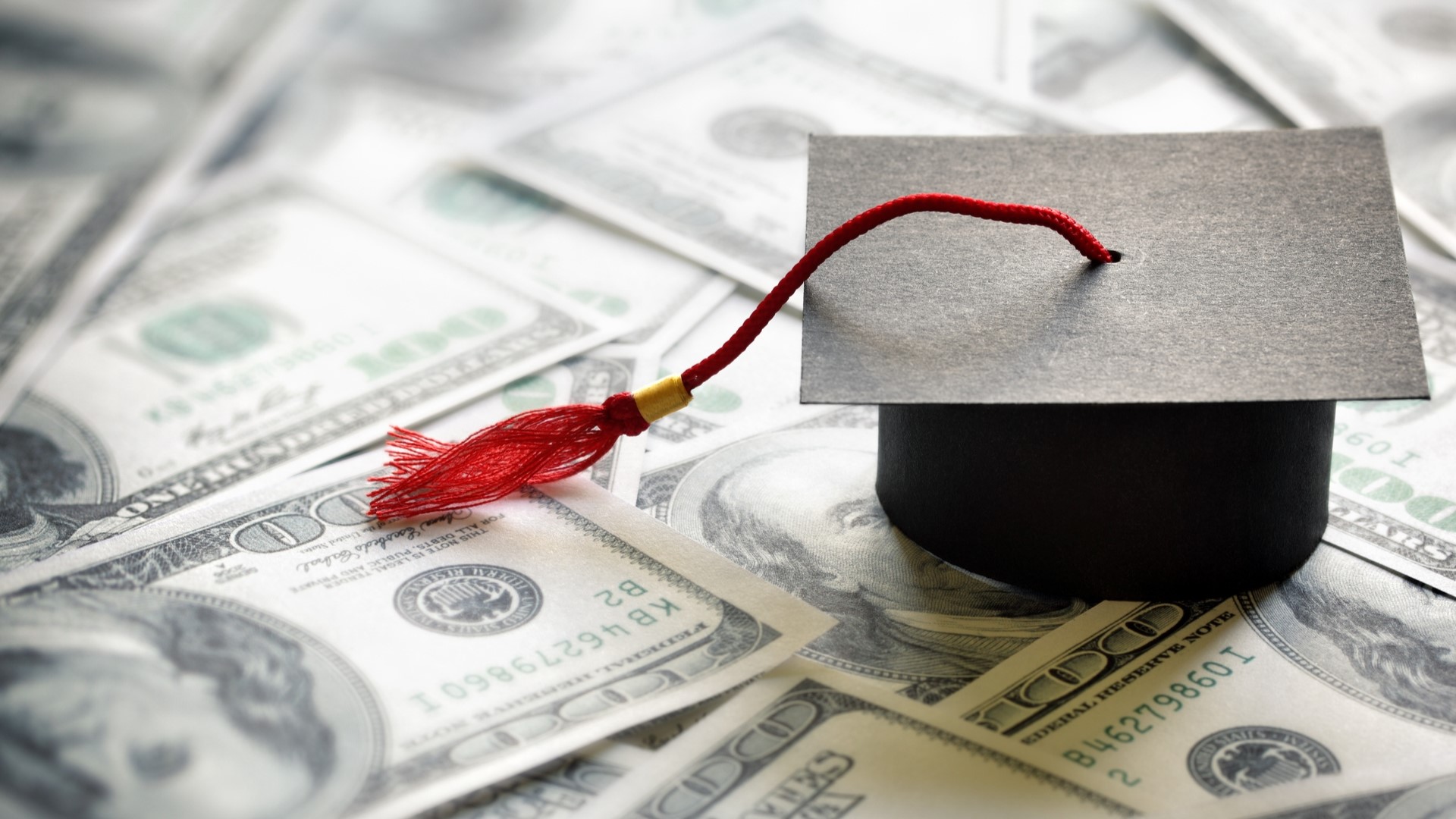WASHINGTON — It's been one week since President Joe Biden announced his long-awaited student loan forgiveness plan, promising to wipe out debt for millions of Americans who attended college.
Upon the news, many flocked to their accounts to see how much they owed and how they could apply for the loan forgiveness program.
As of this week, the Biden administration has said that the application won't be available until "early October."
Here's what we know so far about applying for student loan relief and the key dates you'll want to remember.
How can I apply for student loan debt relief?
Bharat Ramamurti, deputy director of the National Economic Council, said in a White House briefing last Friday that applications are expected to open by early-October. Borrowers should expect loan adjustments as soon as four to six weeks after completing the application, according to the White House.
Ramamurti suggested that those wanting loan relief should apply by roughly Nov. 15 in order to see an adjusted amount go through before the payment pause ends on Dec. 31.
This is not to say the Department of Education won't keep processing applications after the pause expires. Loan relief will be offered to those who are eligible until Dec. 31, 2023.
White House Press Secretary Karine Jean-Pierre reiterated Wednesday that there isn't a set date yet for when the application would be available, but they've laid out the general timeline to follow.
Borrowers anxious to apply for student loan relief should head to StudentAid.gov and sign up to be notified when applications open.
Does everyone have to apply for student loan forgiveness?
Some won't have to go through the process of applying for student relief. About 8 million borrowers will see their loans adjusted automatically because the Education Department already has their income information on file.
Who is eligible for student loan forgiveness?
Under Biden's plan, the administration is erasing up to $10,000 in federal student loan debt for those with incomes below $125,000 a year, or households that earn less than $250,000.
The plan also cancels an additional $10,000 for those who received federal Pell Grants to attend college.
"Our estimate is that the debt relief proposal will reduce average annual receipts in the student loan program by about $24 billion a year over the next 10 years," Ramamurti said after the announcement.
Who qualifies for Pell Grants? How do you know if you received one?
Pell Grant recipients, who will receive $20,000 in student debt forgiveness if they meet the income requirements, make up more than 60% of the student loan borrower population, according to the White House. The Department of Education estimates that roughly 27 million borrowers with Pell Grants will be eligible for up to $20,000 in student debt relief.
Pell Grants are usually awarded to undergraduate students who “display exceptional financial need." Unlike loans, Pell Grants do not have to be repaid except under certain circumstances.
The amount a borrower receives through a federal Pell Grant award is based on their Expected Family Contribution, cost of attendance at their school, status as a full or part-time student, and plans to attend school for a full academic year or less. Pell Grant amounts change yearly and the maximum award for the 2022-2023 school year is $6,895.
A borrower’s school can apply Pell Grant funds directly to their costs, pay the borrower directly, or combine these methods, the Department of Education said.
Can I get a refund if I've paid my student loans?
Borrowers who paid between March 13, 2020, and Aug. 23, 2022, and now owe less than the $10,000-$20,000 threshold, can request a refund through their loan provider for the full amount forgiven, according to the Federal Office of Student Aid.
Any amount paid after Aug. 24, 2022 that brings a borrower below the threshold will automatically be refunded without the borrower requesting it, a U.S. Department of Education spokesperson told VERIFY.
What kind of loans are included in the student debt relief program?
Parent PLUS loans, which are issued to parents of dependent undergraduate students, are meant to supplement other financial aid offers. These borrowers are eligible for student loan forgiveness, senior Biden administration officials told VERIFY.
Parents with these loans and students are each eligible for debt forgiveness, the Department of Education confirmed in an email to VERIFY.
“If both the student and the parent received a Federal Pell Grant, each person would be eligible to receive the additional $10,000 in debt cancellation,” the department added.
Additionally, federal graduate loans are also eligible for forgiveness if the loans are held by the Department of Education, according to experts.
“We have confirmed that graduate student borrowers will be included in this cancellation,” said Jessica Thompson, vice president at the Institute for College Access and Success. “So again: same income thresholds, same amounts.”
However, private student loans are not eligible for forgiveness.
Will people who receive student loan forgiveness have to pay federal or state taxes?
People will not pay federal taxes on student loan forgiveness, but states could decide to tax money forgiven by the federal government as income.
The American Rescue Plan Act (ARPA) of 2021 was passed in March 2021 as part of a COVID-19 relief package that stipulated any debt forgiven from Dec. 21, 2020 to Jan. 1, 2026 will not count as income.
This means eligible borrowers don’t have to pay federal taxes on any student loan forgiveness through Dec. 31, 2025, Andrew Lautz, National Taxpayers Union Foundation's director of federal policy, told VERIFY.
States that tax income could theoretically charge borrowers state income taxes on forgiveness, but some already agreed to exclude student loan forgiveness from taxation.

